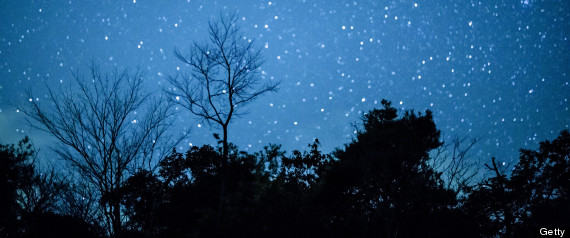
We often think of sleeplessness as a quintessentially American tradition, wrought by our work-centric culture, long hours and stressful lives. But according to a new survey, the problem is an international one and trending poorly, with UK adults getting less sleep than they did a year ago.
In fact, they're getting troublingly little sleep: 65 percent are sleeping an average of just six hours and 27 minutes every night[1] , according to the survey, which was conducted by the hotel company Travelodge.
That's just over 30 minutes shy of the general recommendation that adults should aim for seven to nine hours of slumber a night[2] . Get less than those seven hours and you put yourself at risk for a whole host of health consequences[3] that range from worrisome to lethal, including memory and heart problems, increased cancer and diabetes risk and earlier death.
But with a number of cultures falling prey to an around-the-clock work schedule, how do we make time for sleep?
Turns out, we might be doing a better job than you might expect. In 2009, the Organisation for Economic Co-operation and Development (OECD), a France-based group that aims to promote democracy and a market economy[4] , compiled available data from its 30 member nations on time use[5] , including how much time the average person spent asleep.
Sources: OECD, Australian Bureau of Statistics, Statistics New Zealand, United States Bureau of Labor Statistics, Statistics Canada, Japanese Time Use Survey[8] [9] [10] [11] [12] [13]
China recorded the most sleep[14] , with more than nine hours of sleep, according to a 2011 OECD report. Could that have something to do with the highly-accepted practice of public sleeping[15] ?
Japan, on the other hand, gets the least, with seven hours and 14 minutes of shut-eye each weekday. Time spent sleeping has been steadily declining[16] since the 1970s, according to the 2010 time use report -- and Internet use has been on the up and up[17] .
Other countries, like Spain, may be benefitting from a daily nap. The famed Spanish siestas were long built in to the typical work day[18] , although some have been forced to forgo a nap[19] in times of economic crisis.
Despite how often Americans are told we're not sleeping enough, the latest U.S. statistics suggest we're getting nearly eight and a half hours a night[20] .
Granted, some of the available data is from 2006 -- or earlier. It's probably safe to say many nations are averaging less sleep in 2013, as technology has only become more disruptive[21] . It's also important to note that a Travelodge survey doesn't exactly replicate a nation-wide survey conducted by a country's bureau of statistics. Case in point: Those six-hour nights the Brits are reportedly logging are a far cry from the 503 minutes -- over eight hours! -- recorded in 2005. Whether UK adults have truly cut back on shut-eye this dramatically will have to be verified by a future governmental time use survey. But in the meantime, tell us what you think -- does your country get enough sleep?
References
- ^ 65 percent are sleeping an average of just six hours and 27 minutes every night (www.marketwire.com)
- ^ seven to nine hours of slumber a night (www.sleepfoundation.org)
- ^ health consequences (www.huffingtonpost.com)
- ^ promote democracy and a market economy (www.livescience.com)
- ^ compiled available data from its 30 member nations on time use (www.oecd.org)
- ^ Who Gets The Most Sleep? (infogr.am)
- ^ Create infographics (infogr.am)
- ^ OECD (www.oecd.org)
- ^ Australian Bureau of Statistics (www.abs.gov.au)
- ^ Statistics New Zealand (www.stats.govt.nz)
- ^ United States Bureau of Labor Statistics (www.bls.gov)
- ^ Statistics Canada (www.statcan.gc.ca)
- ^ Japanese Time Use Survey (www.nhk.or.jp)
- ^ most sleep (www.oecd.org)
- ^ highly-accepted practice of public sleeping (travel.cnn.com)
- ^ steadily declining (www.nhk.or.jp)
- ^ Internet use has been on the up and up (www.nhk.or.jp)
- ^ built in to the typical work day (www.huffingtonpost.com)
- ^ forgo a nap (www.nytimes.com)
- ^ nearly eight and a half hours a night (www.bls.gov)
- ^ technology has only become more disruptive (www.sleepfoundation.org)
- ^ Send us a tip (www.huffingtonpost.com)
- ^ Send us a photo or video (www.huffingtonpost.com)
- ^ Suggest a correction (www.huffingtonpost.com)

0 comments:
Post a Comment